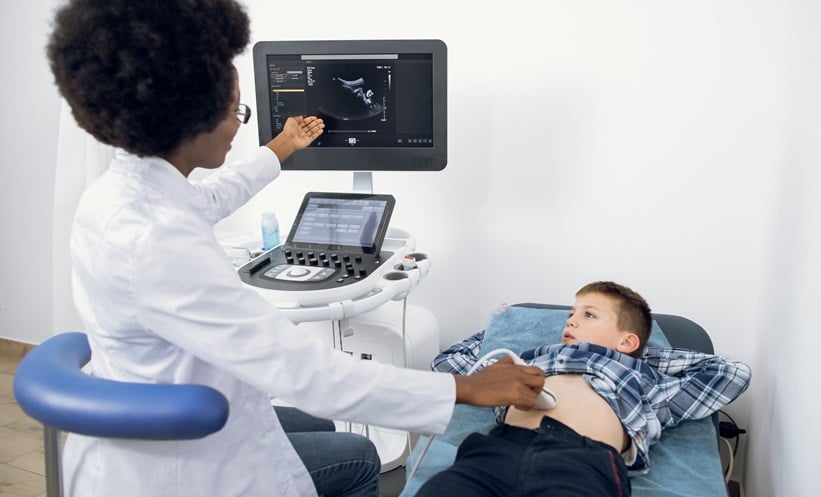A RECENT study highlights the potential of intestinal ultrasound (IUS) as a valuable tool for predicting treatment outcomes in children with moderate-to-severe ulcerative colitis (UC).
The prospective, longitudinal cohort study included 42 children (<18 years; median age: 14 years; 55% female) with moderate-to-severe UC (endoscopic Mayo score [EMS] >2) starting biologic or small molecule treatment. The team aimed to evaluate the predictive accuracy of IUS in achieving treat-to-target (T2T) endoscopic remission (ER), a key goal in UC management recommended by the Selecting Therapeutic Targets in Inflammatory Bowel Disease (STRIDE) II initiative.
Children were assessed at baseline, after 8±2 weeks, and again after 6–12 months. Researchers monitored several parameters, including bowel wall thickness (BWT), colour Doppler signal, and other IUS scores, alongside clinical and biochemical assessments such as the Pediatric Ulcerative Colitis Activity Index (PUCAI), faecal calprotectin, and C-reactive protein. T2T ER was defined as EMS=0, endoscopic improvement as EMS≤1, and response as EMS decrease ≥1. The primary outcome was the accuracy of change in BWT between baseline and week 8 to detect ER.
Findings revealed that a reduction in BWT by ≥43% at Week 8 was a significant predictor of ER. Additionally, a decrease in the International Bowel Ultrasound Segmental Activity Score (IBUS-SAS) by ≥64% provided the highest accuracy for detecting ER, a decrease in the Civitelli UC Index (CUCI) ≥1 point was most accurate for detecting endoscopic improvement, and a ≥55% decrease in PUCAI had the highest accuracy to detect endoscopic response. Moreover, a BWT measurement of ≤2.2 mm was found to be highly accurate in predicting ER, with 95% sensitivity and 91% specificity, and BWT≤2.8 mm was associated with endoscopic improvement.
These findings advocate for the early inclusion of IUS in clinical practice as a non-invasive, reliable tool to guide T2T strategies and improve outcomes for children with UC.
Ada Enesco, EMJ
Reference
Dolinger MT et al. Early intestinal ultrasound response to biologic and small molecule therapy predicts endoscopic outcomes in children with ulcerative colitis. Presentation 30. Digestive Disease Week, May 18–21, 2024.








